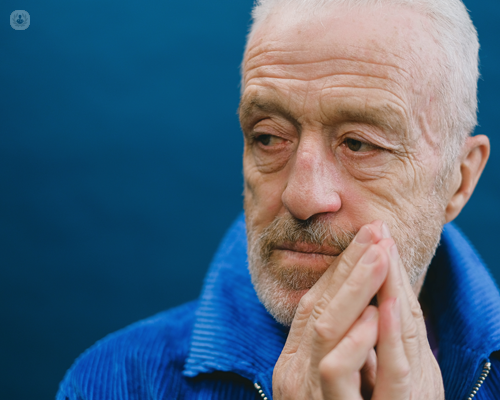Urinary incontinence and prostate cancer: How is it treated?
Escrito por:Urinary incontinence is a common issue for men who have undergone treatment for prostate cancer, particularly after prostate surgery or radiation therapy. It occurs when the muscles and nerves controlling urination are affected, leading to involuntary leakage of urine. While incontinence can be distressing, effective treatments are available to help restore bladder control and improve quality of life.

Why does urinary incontinence occur after prostate cancer treatment?
Urinary incontinence often arises from damage or disruption to the sphincter muscles or nerves during prostate cancer treatments such as:
- Radical prostatectomy: Surgical removal of the prostate may weaken or damage the urinary sphincter.
- Radiotherapy: Radiation can cause irritation or scarring to surrounding tissues, impacting bladder function.
- Pelvic floor changes: Loss of muscle strength in the pelvic region can also contribute.
What are the non-surgical treatments for urinary incontinence?
Milder forms of incontinence can often be managed with non-invasive methods, such as:
- Pelvic floor exercises: Also known as Kegel exercises, they help to strengthen the muscles that control urination.
- Bladder training: Techniques to improve bladder control by gradually increasing the time between bathroom visits.
- Medications: Drugs such as anticholinergics or beta-3 adrenergic agonists can reduce urgency and improve bladder control.
Surgical options for persistent incontinence
When non-surgical methods are insufficient, surgical treatments may be recommended. Options include:
- Sling procedures: A supportive sling is placed under the urethra to reduce leakage.
- Artificial urinary sphincter (AUS): A device that mimics the function of a natural sphincter, allowing patients to control urination manually.
- Urethral bulking agents: Injectable fillers that improve sphincter closure.
Expert care for better outcomes
If you experience urinary incontinence as a complication of prostate cancer treatment, consulting a urology specialist is essential. A personalised approach to treatment can address the severity and underlying cause of your symptoms, improving your quality of life.


